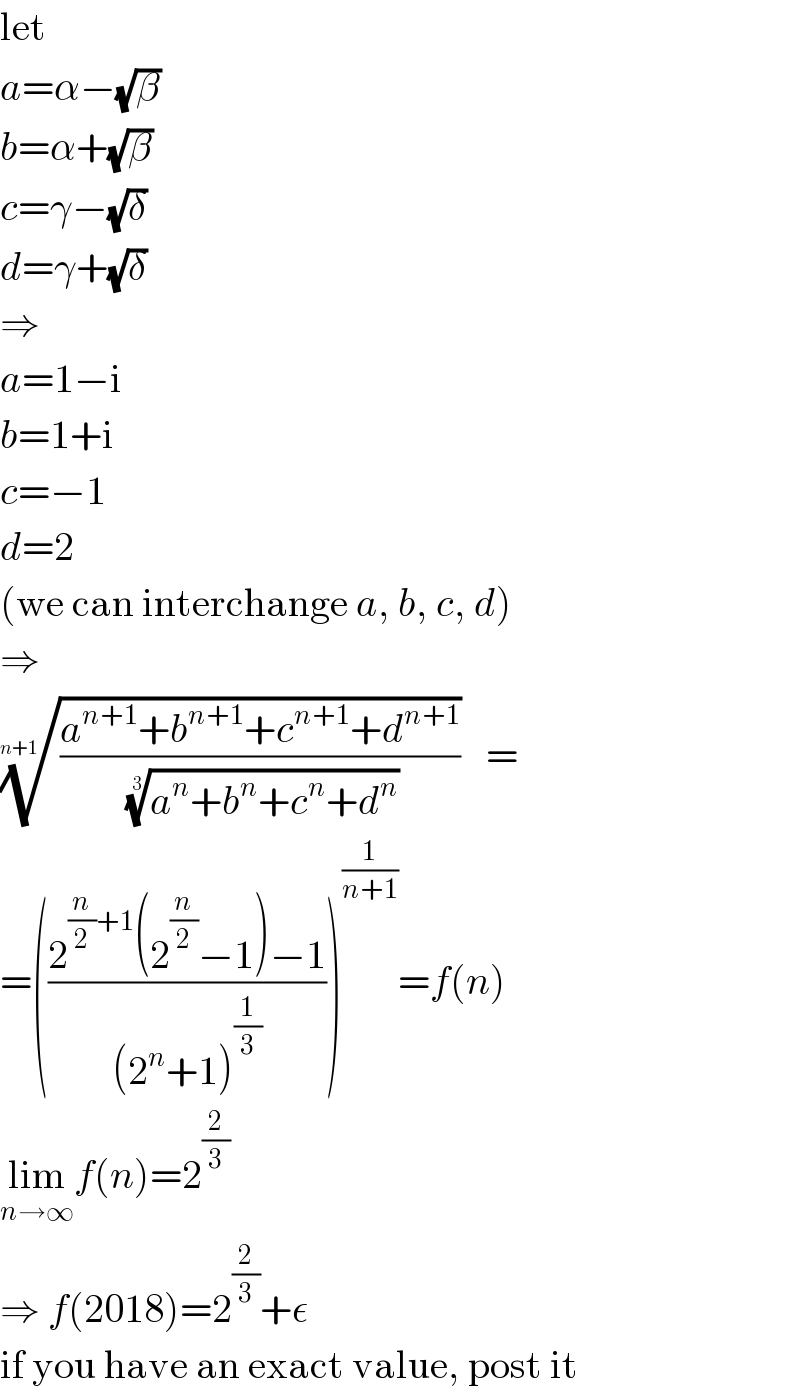
Question and Answers Forum
Question Number 62462 by naka3546 last updated on 21/Jun/19

Answered by MJS last updated on 21/Jun/19

| ||
Question and Answers Forum | ||
Question Number 62462 by naka3546 last updated on 21/Jun/19 | ||
 | ||
Answered by MJS last updated on 21/Jun/19 | ||
 | ||
| ||